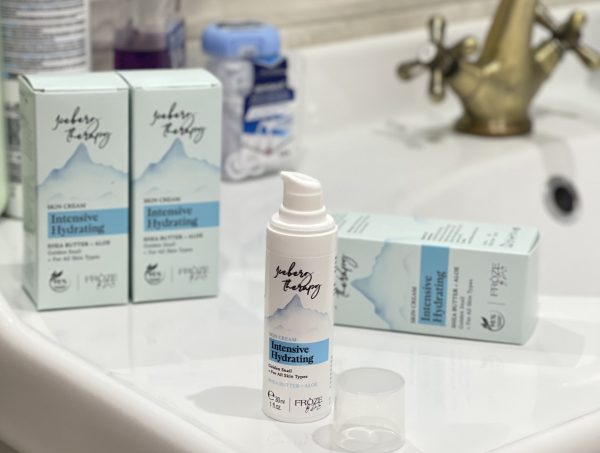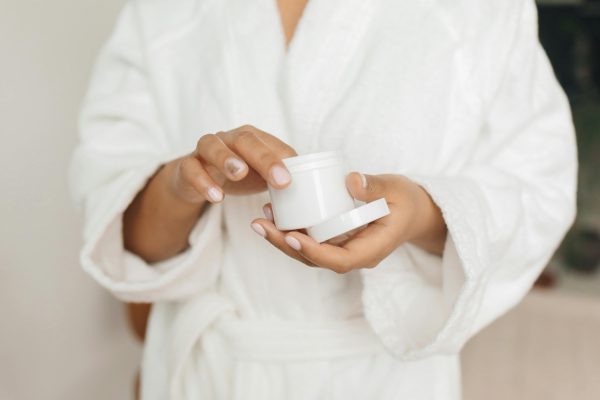Sensitive skin is a condition that causes a lot of debate: some consider it a myth, while others see it as a serious issue requiring special care. Let’s explore what this term means, the causes and signs associated with it, and the products that can help soothe sensitive skin.
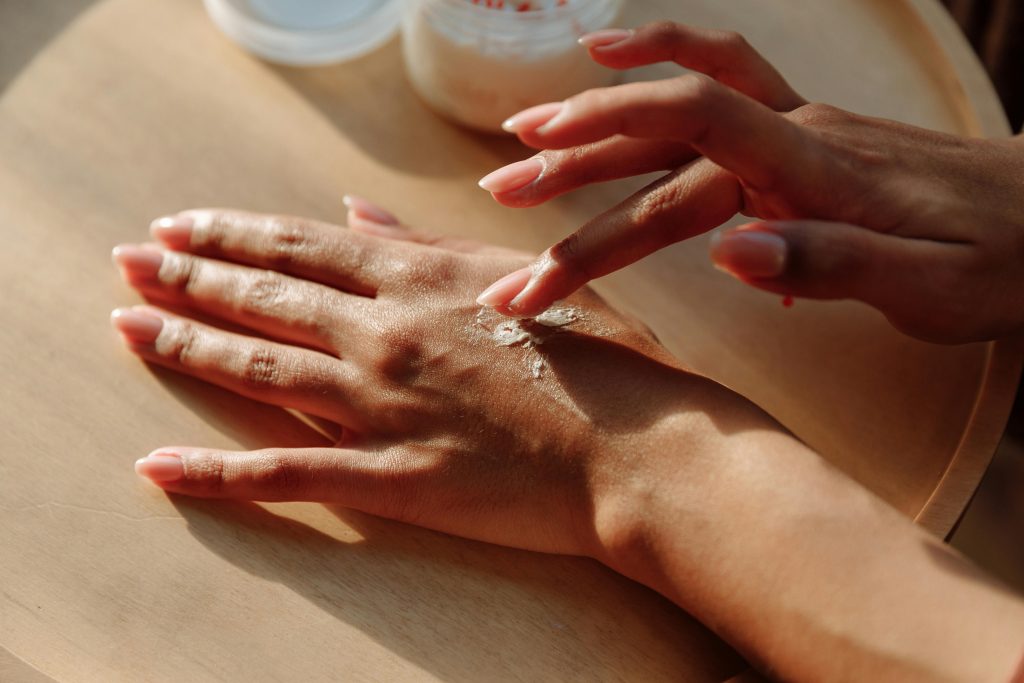
What is Sensitive Skin?
Sensitive skin is not a medical diagnosis, but a condition characterized by increased skin response to external irritants. It may manifest as redness, itching, flaking, or tightness after using cosmetics or exposure to the environment.
Scientists are still debating whether sensitive skin should be classified as a separate category, as its symptoms often overlap with other dermatological conditions such as allergic reactions, rosacea, or eczema.
Reasons for Sensitive Skin
- Skin Barrier Dysfunction. The skin acts as a protective barrier, but a lack of lipids or damage to its surface layer can make it vulnerable to irritants.
- Exposure to Aggressive Environmental Factors. Cold, heat, UV radiation, and air pollution can all increase skin response.
- Improper Skincare. Using harsh products such as alcohol-based toners or products with high concentrations of acids can be harmful to the skin.
- Hormonal Changes. Pregnancy, menopause, or stress can affect skin condition, increasing sensitivity.
- Genetic Factors. Sensitivity can be hereditary, especially in people with fair skin or a predisposition to allergic reactions.
Signs of Sensitive Skin
- Redness after using cosmetics.
- A sensation of burning or tightness.
- Flaking or itching, even without visible irritants.
- Reactions to temperature changes or tap water.
- A tendency for breakouts or allergic reactions.
If you experience most of these symptoms, it may indicate sensitive skin. However, for an accurate diagnosis, you should consult a dermatologist.
How to Soothe Sensitive Skin?

Choosing the Right Skincare Products
- Use gentle cleansers free of sulfates.
- Opt for creams with soothing ingredients such as panthenol, aloe vera, or centella asiatica.
- Avoid products containing fragrances, alcohol, or other harsh ingredients.
Hydration and Protection
- Moisturizing is crucial for sensitive skin care. Choose products with hyaluronic acid, ceramides, and natural oils.
- Protect your skin from UV rays with sunscreen that has an SPF of at least 30.
- Maintain comfortable indoor humidity, especially in winter.
Special Treatments
- Sheet masks with calming ingredients can quickly reduce redness.
- Use thermal water sprays for hydration throughout the day.
- Avoid washing with hot water, as it dries and irritates the skin.
Balanced Nutrition
Vitamins A, E, C, and omega-3 fatty acids help strengthen the skin’s barrier function.
The Role of Nutrition in Sensitive Skin Care
Sensitive skin often reflects the internal state of the body. A balanced diet can help reduce inflammation and improve the overall condition of the skin. Let’s explore how nutrition impacts skin health.
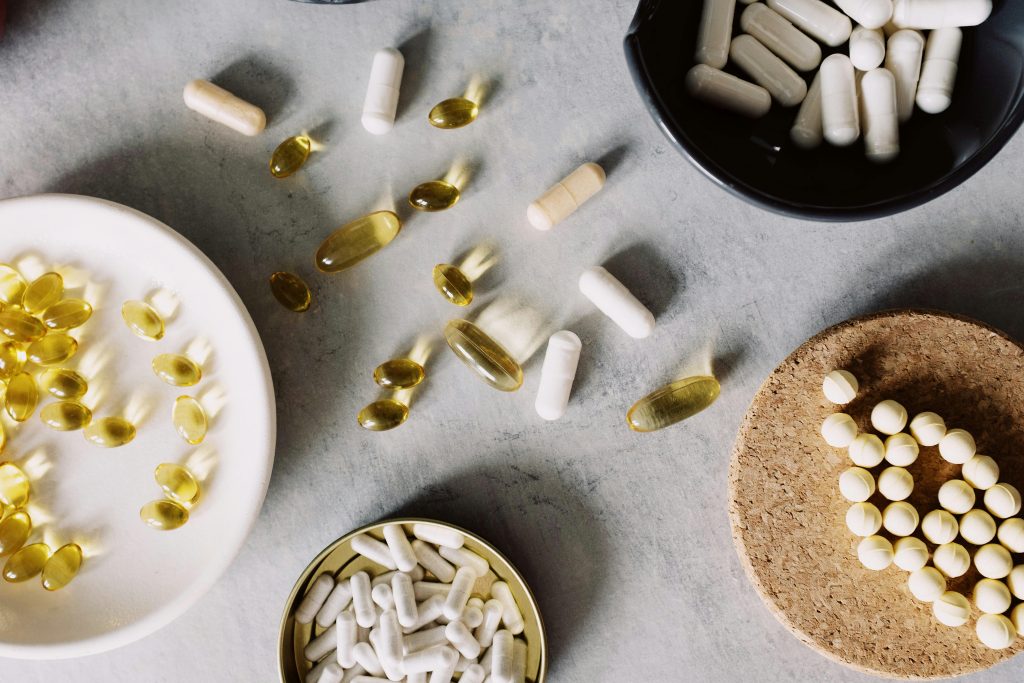
Sebum Production Regulation
Sebaceous glands produce sebum (skin oil), which is essential for hydration and protection. Excessive consumption of fatty foods or sugar can increase the activity of these glands, leading to oily shine or acne.
Inflammatory Processes
Foods that promote inflammation in the body (such as sugar, trans fats, and alcohol) affect the skin, causing acne, rosacea, or exacerbating redness.
Antioxidant Protection
Vitamins like A, C, and E, as well as flavonoids, neutralize free radicals that damage skin cells and contribute to aging.
Collagen Production
Proteins, vitamin C, zinc, and copper are essential for collagen synthesis, which ensures skin firmness and elasticity.

Hydration
Water and water-rich foods (such as cucumbers and watermelon) maintain optimal skin hydration levels.
Nutrition Rules for Sensitive Skin
Sometimes a simple adjustment to your diet can significantly improve your skin condition. However, be patient—noticeable improvements take at least three to four weeks. Stick with it, and soon you’ll love the reflection in the mirror!
Foods to Include in Your Diet
- Omega-3 fatty acids: Salmon, avocado, flaxseeds.
- Antioxidants: Berries, citrus fruits, green tea.
- B-vitamins: Eggs, nuts, spinach.
- Zinc: Pumpkin seeds, lentils, seafood.

Foods to Avoid
- Spicy foods: Can trigger redness.
- Excess sugar: Promotes inflammation.
- Alcohol: Dries out the skin and increases reactivity.
Hydration Routine
Drink enough water (1.5–2 liters per day) to maintain skin hydration from within.
Makeup for Sensitive Skin: Tips and Recommendations
Sensitive skin requires a special approach—not just in skincare but also in makeup. Using unsuitable products can lead to irritation, redness, or even breakouts.

How to Prepare Sensitive Skin for Makeup
Cleansing
- Use gentle cleansers without sulfates or alcohol.
- Opt for gels or milky formulas designed for sensitive skin.
Moisturizing
- Apply a lightweight moisturizer with soothing ingredients like aloe vera, panthenol, or niacinamide.
- Wait until the cream is fully absorbed to ensure smooth makeup application.
Sun Protection
- Use a physical SPF with mineral filters (zinc oxide or titanium dioxide).
How to Choose Cosmetics for Sensitive Skin
- Hypoallergenic Products. Look for products labeled “hypoallergenic,” “for sensitive skin,” or “dermatologically tested.”
- No Fragrances or Alcohol. Fragrances and alcohol often trigger irritation. Opt for products free from these ingredients.
- Mineral-Based Cosmetics. Mineral-based formulas (mica, zinc oxide) are generally suitable for sensitive skin as they don’t clog pores and reduce the risk of irritation.
- Expiration Dates. Pay attention to expiration dates, especially for natural cosmetics, which can lose their properties quickly.
Steps to Apply Makeup to Sensitive Skin

Foundation (BB Cream or Tinted Moisturizer)
- Choose lightweight, water-based formulas or mineral powders.
- Avoid heavy matte formulations that can dry out the skin.
Concealer
- Use concealers with soothing ingredients such as chamomile extract or aloe vera.
- Apply sparingly to avoid overloading the skin.
Powder
- Opt for mineral powders to set makeup and reduce shine.
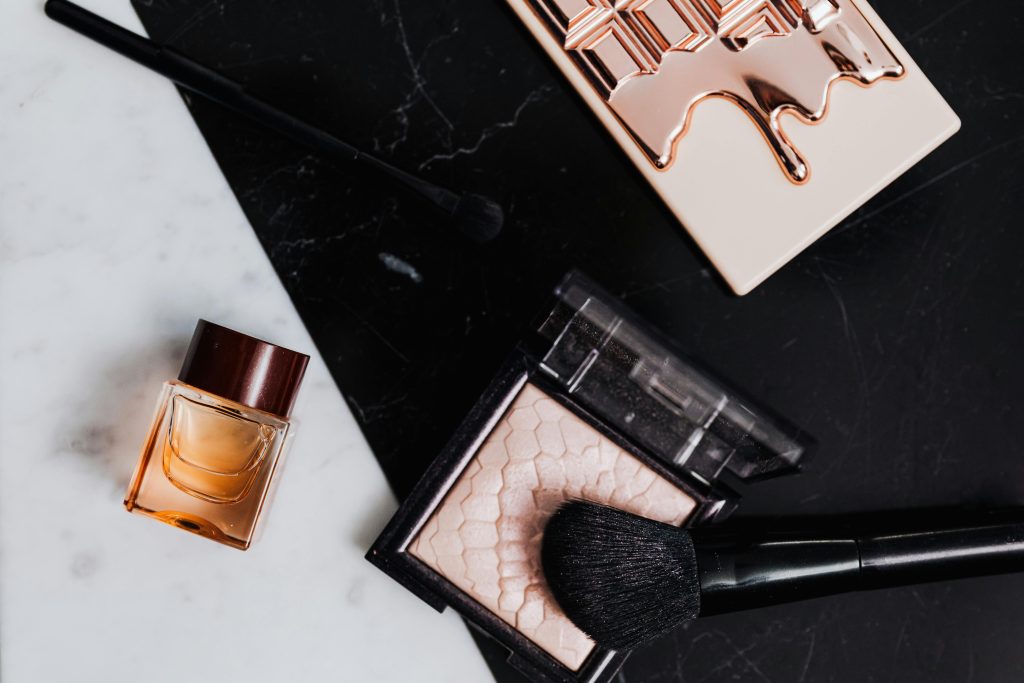
Blush and Bronzer
- Select cream-based products to prevent dryness.
- Stick to natural shades that enhance your beauty.
Eyeshadow
- Choose cream or mineral-based eyeshadows.
- Avoid products with large glitter particles, which can irritate the eyelids.
Mascara
- Look for formulas designed for sensitive eyes and free from fragrances.
- Opt for water-soluble mascara to make removal gentle and easy.
Lipstick or Lip Gloss
- Use hydrating products made with oils and waxes.
- Avoid long-lasting formulas that can dry out the lips.
How to Remove Makeup from Sensitive Skin
- Use micellar water without alcohol or a cleansing milk designed for sensitive skin.
- Avoid harsh rubbing; use soft cotton pads.
- Finish cleansing with a soothing toner or thermal water.

Additional Tips
- Always patch-test new cosmetics on a small area of skin.
- Use brushes and sponges made from soft materials and wash them regularly.
- Avoid frequent experiments with new products if your skin is sensitive to changes.
Sensitive skin requires care and a gentle approach, but proper skin care, a balanced diet and regular treatments will help you keep your skin healthy and young. Caring for your skin is caring for yourself, and your skin will reward you with beauty and comfort.

